We have thousands of human-written stories, discussions, interviews and reviews from today through the past 20+ years. Find them here:

July 2009
Carving a scroll - step by step - part XVI
July 30, 2009 14:50
Hi! We are back again with our tutoria.
Here I'm using a knife for cutting till the centerline:

When cutting the fluthing near the throat, the gouge may scape and hurt the front part of the pegbox's walls, so I protect them with a small piece of thick leather:
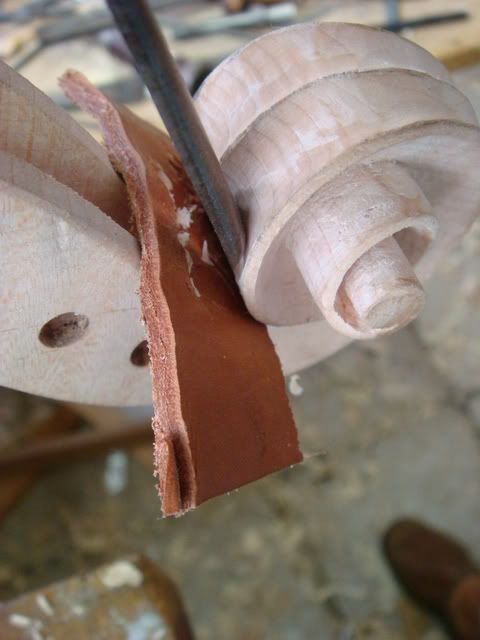
Again cutting the throat region with a knife:
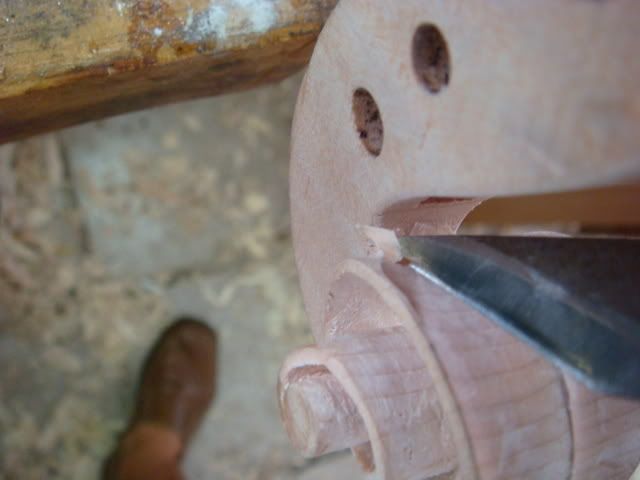
Here using a knife to cut till the chamfer. The channell was made with the gouge, the knife will just cut the small remaining part till the line of the chamfer, I find it gives more precision than the gouge, the gouge can "invade" the chamfer, but many makers will use just the gouge:

Here I'm using a round file to take off some marks left by the gouge:
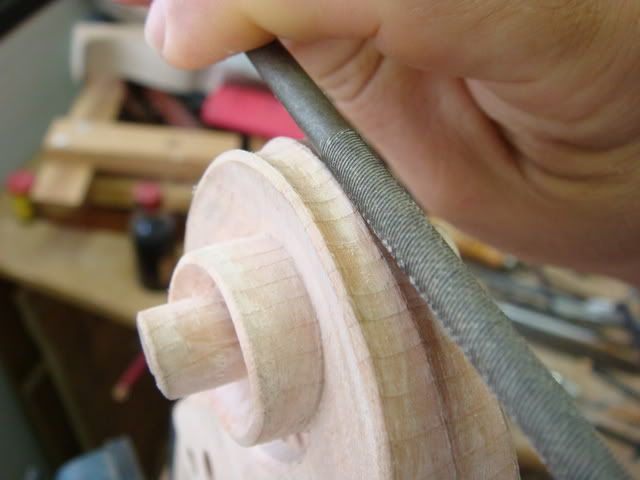

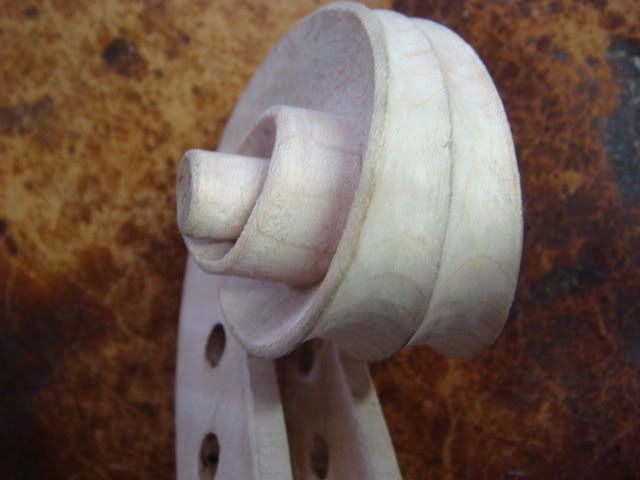
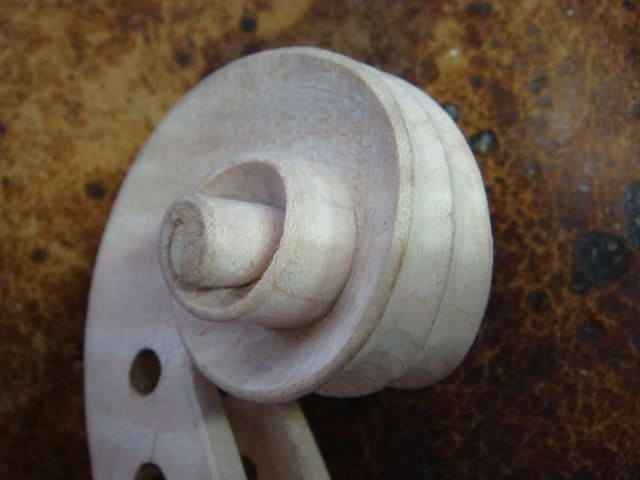
Photos of my latest 16 inches viola 'Tullia d'Aragona'
July 22, 2009 14:50
Hi! This is my latest 16 inches viola, which I named "Tullia d"Aragona" (a Renassance Italian courtesan).
The model is inspired in Andrea Guarneri, it's not all that ellegant (a fat courtesan!) but it works in terms of sound.
Thanks to Andrès Lepage for the photos!















Carving a Scroll - step by step - part XV
July 20, 2009 15:36
Notice again the position of my hands hands. The scroll is a bit fragile in this point so you have to support it with your other hand while cutting the channel:
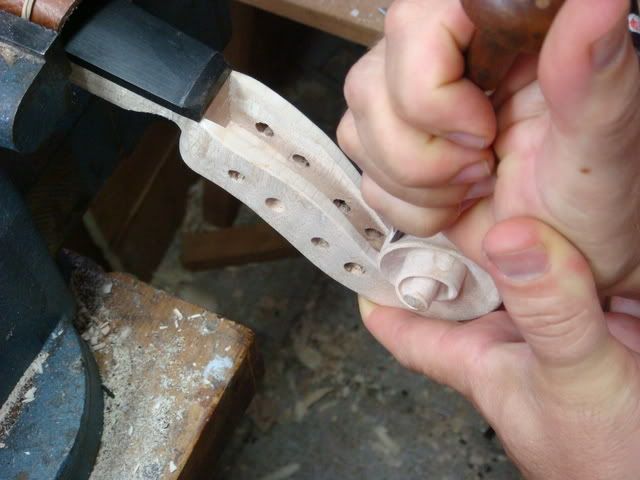
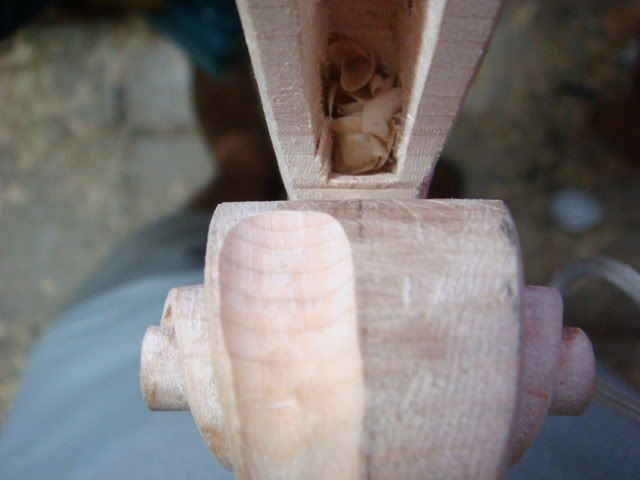
Here a view of the fluting of the front part of the scroll. I put a piece of sandpaper on the back to give contrast:
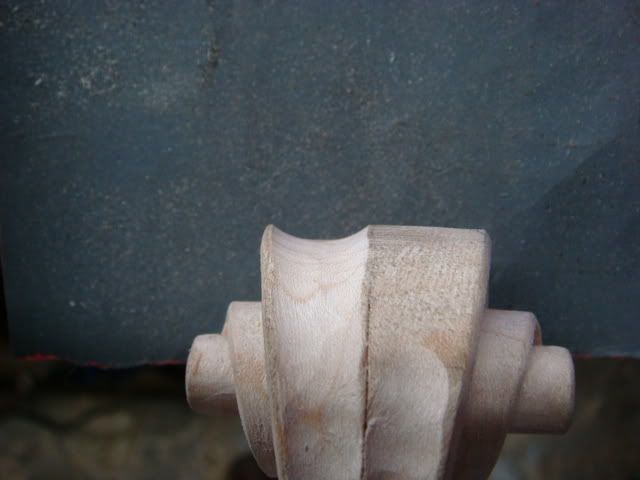
Here Im working in the fluting in the throat region with a knife:
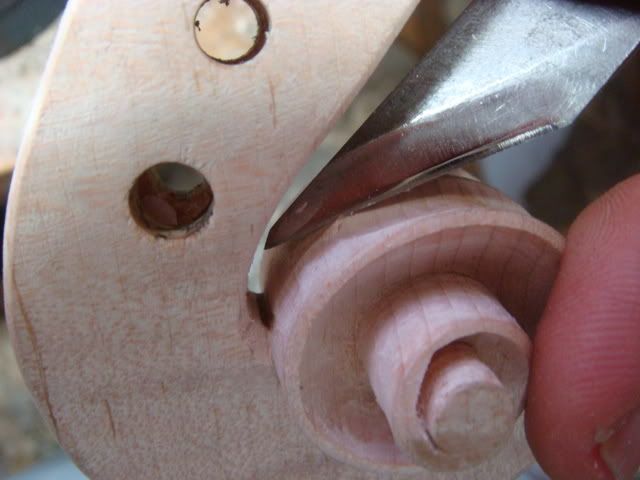
Carvinga a scroll - step by step - part XIV
July 14, 2009 13:07
As I've mentioned before, I'll mention something about scroll's styles here. Maestro Carlo Vettori, from Florence, published a quite interesting book called "Linee Classiche della Liuteria Italiana". If you happen to visit Florence go to visit him in his workshop on Via Guelfa, he is an expert in the Florentine School. He works with restoration and make many new instruments as well. I'll quote some parts of the above mentioned book regarding the scroll, and attach a pic of the book's page:
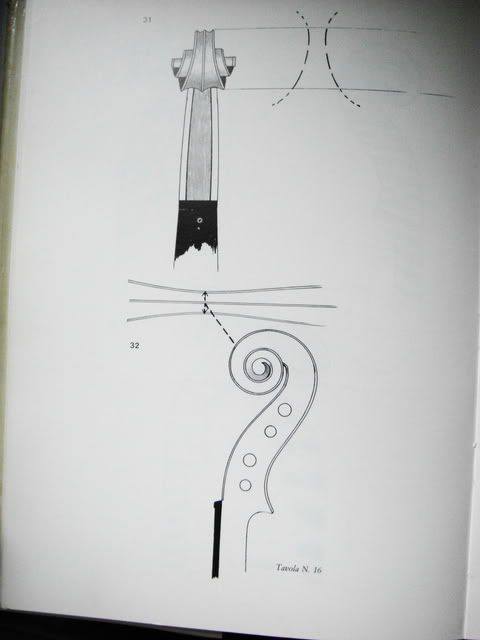
"Fig. 31 represents the front view of a scroll. This is the sort described as "aggressive" since the narrowest part of the chanelling (visible in fig 32) is moved forward by two centimetres from the centre. From this change of position comes the predominance of two curved lines (see the dotted lines in fig. 31). Many of the greatest Italian makers have employed this type of scroll not least among whom are certainly the members of the Amati family." (Carlo Vettori, "Linee Classiche della Liuteria Italiana", Giardini Editori e Stampatori in Pisa, 1980, pages 66, 67, 70 and 71).
I'll quote again the Maestro Carlo Vettori:
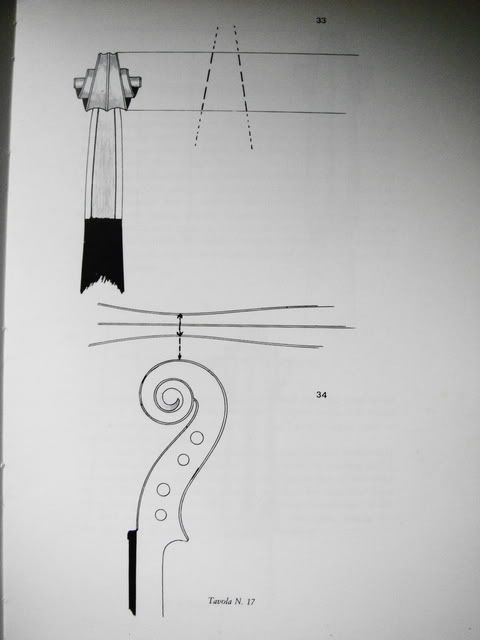
Just when I'm totally satisfied with the side views, front, skew, front, back, all views; and when I find that the two lines of the chamfer are running parallel I will start carving the channels:
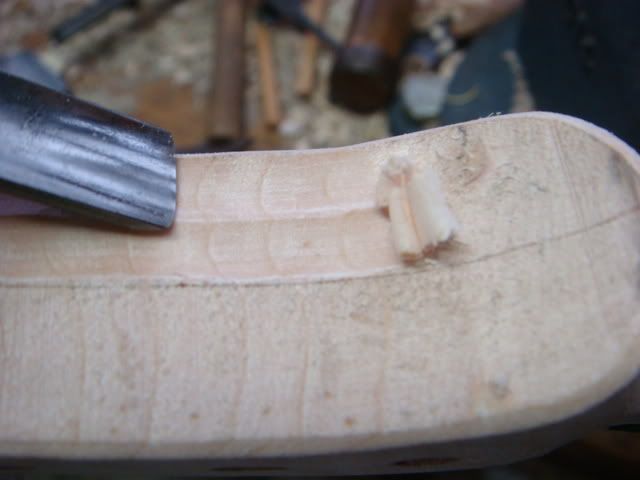
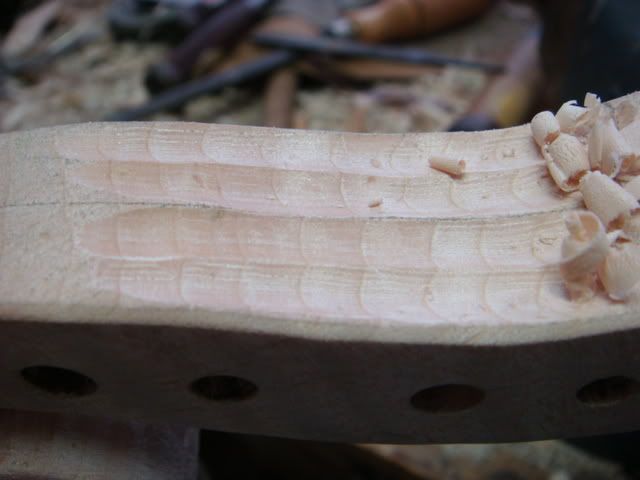
Notice the position of my hands:
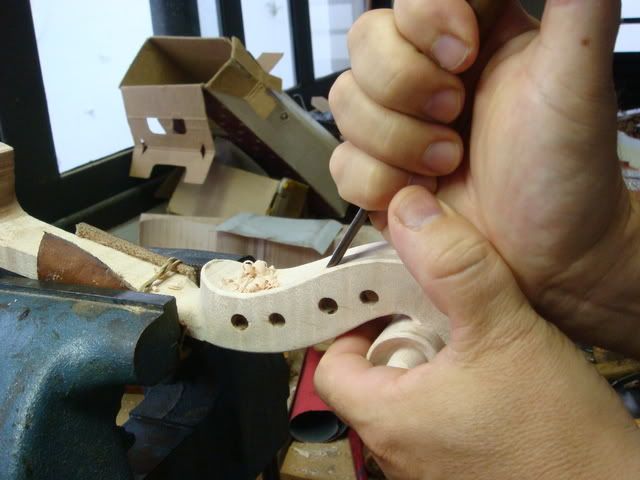
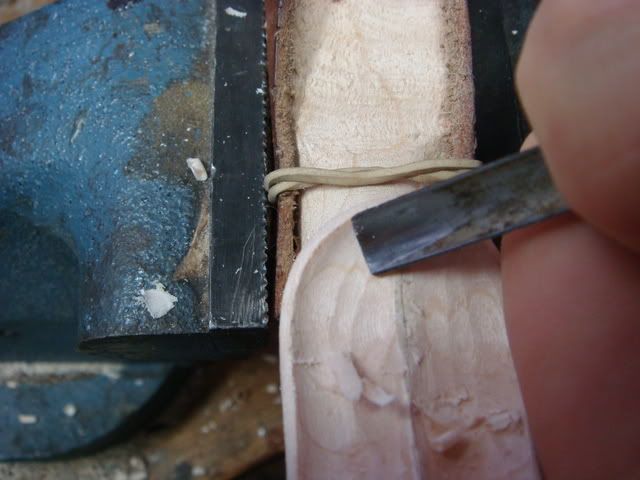
Here I'm using a shaped scraper again:
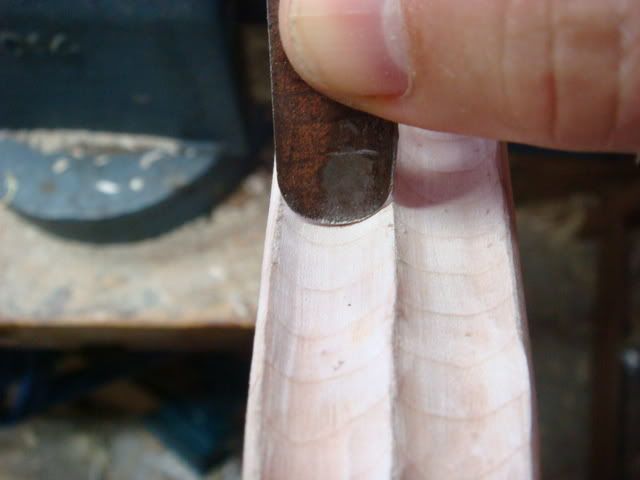
Again, notice the position of my hands, some will get these positions intuitively, others not, and it's a quite important: thing in violin making:

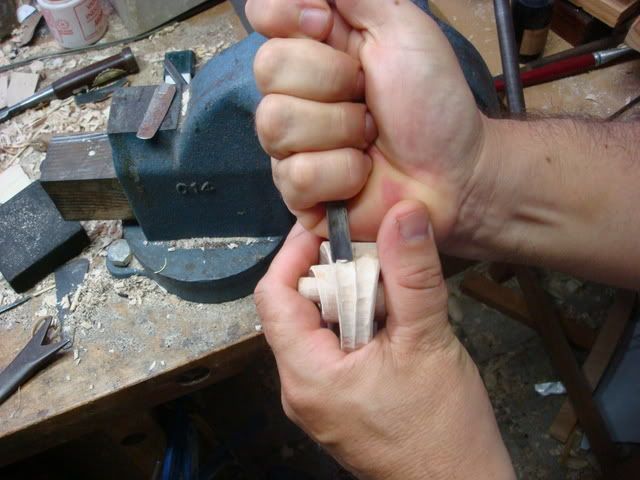
Carving a scroll - step by step - part XIII
July 5, 2009 06:49
Coniglietto e riccio!!! (bunny and scroll!!!)
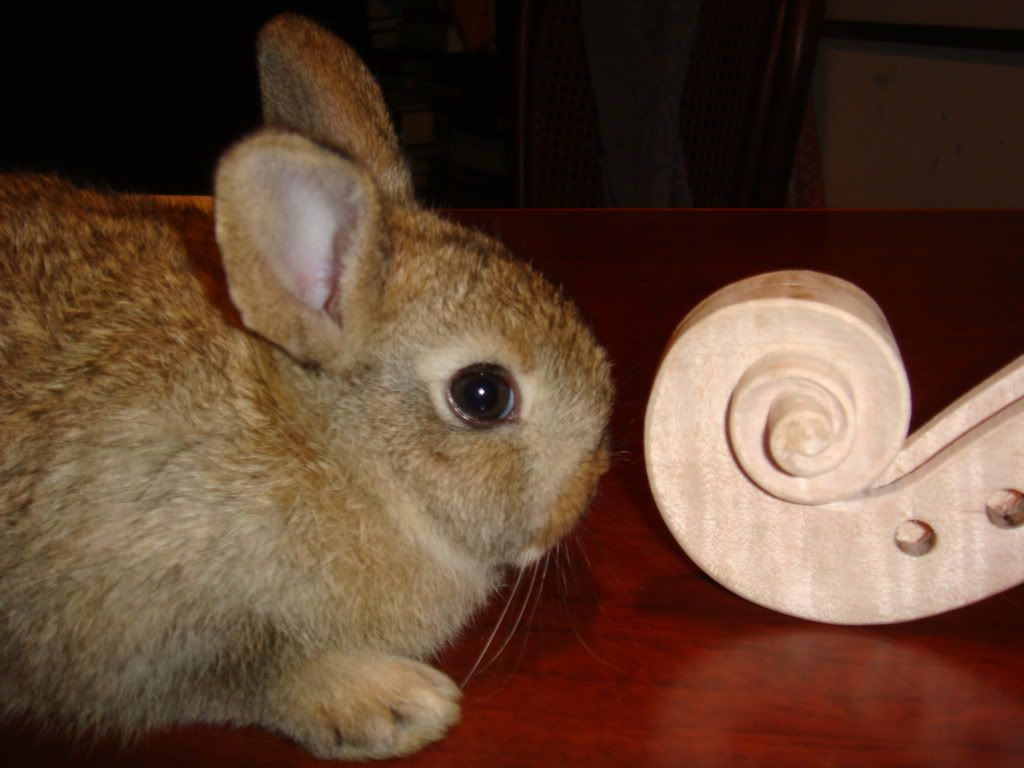
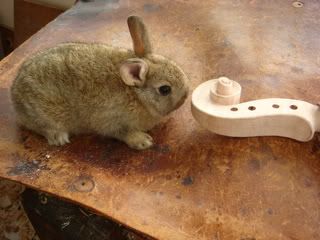
We have some rabbits and sometimes they invade my workshop, that is already a bit messed....
I think I'm almost satisfied now with the side view, but I continue refinishing with my shaped scrapers. Only when I'm satisfied with look of it I'll carve the channels on the front and back of the scroll.
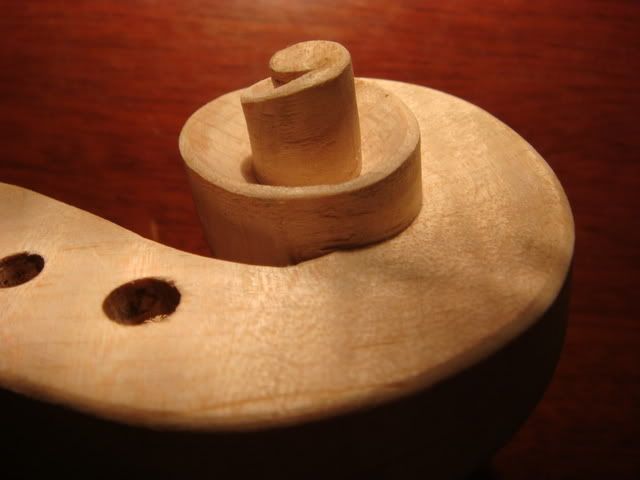
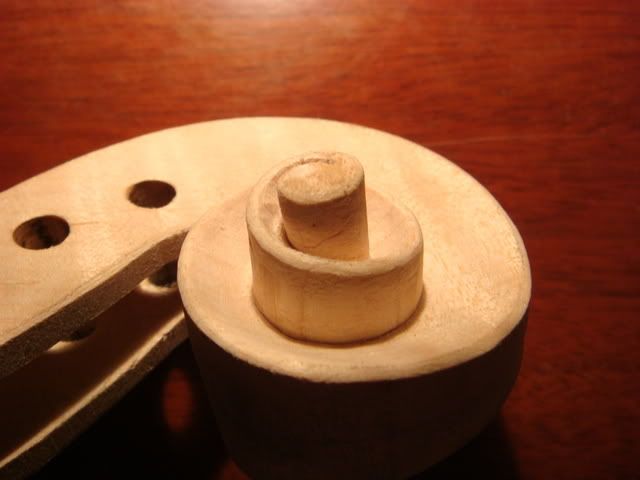
As I've mentioned NO SANDPAPER was used to carve this scroll.
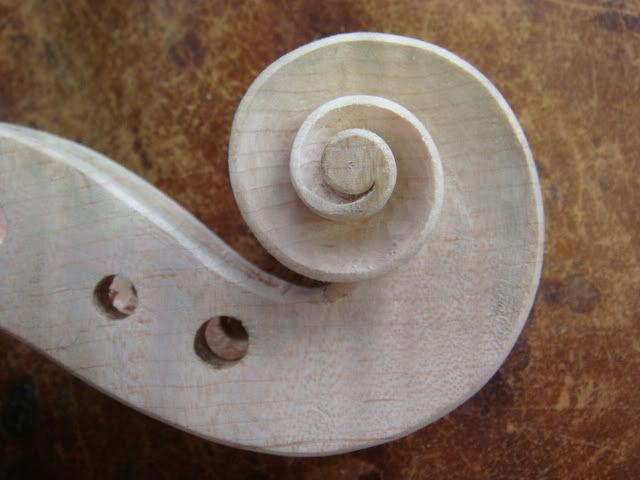
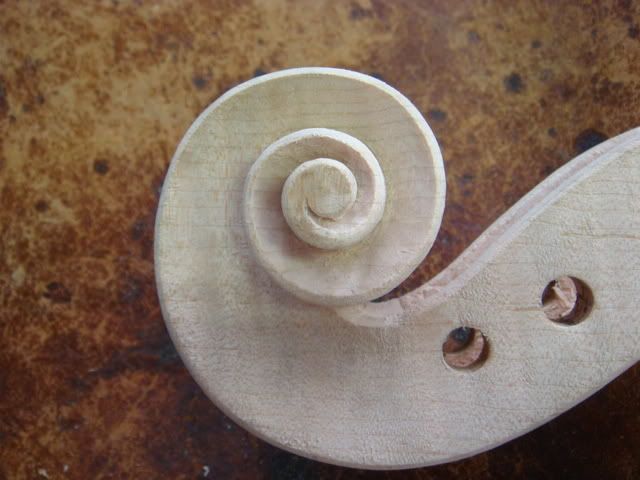
Carving a scroll - step by step - part XII
July 2, 2009 16:26
I continue refinishing with my shaped scrapers. Now we have this:

The scroll is an sculpture work, it's tridimentional, so it most be beautifull in all angles:

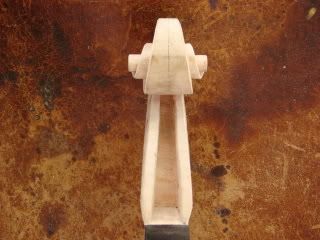
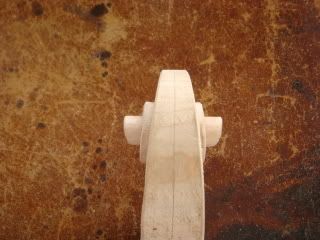

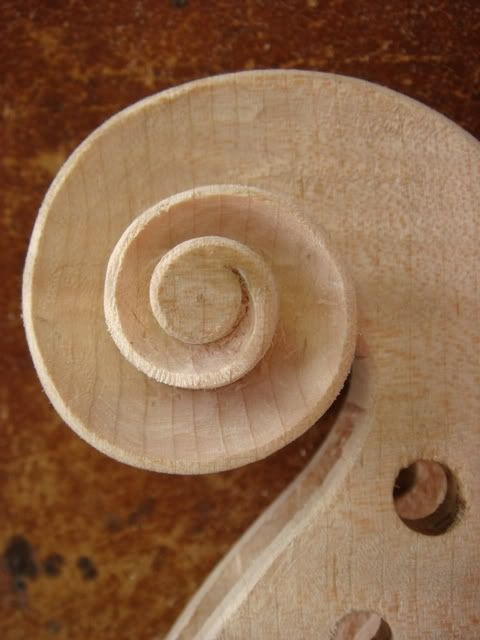
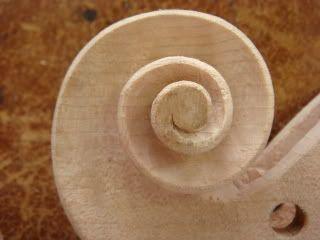
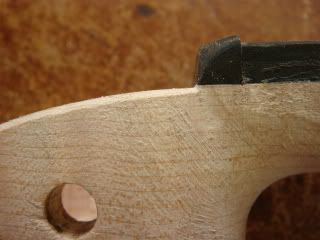
Here I'm cleaning the scroll with a shaped scrap:
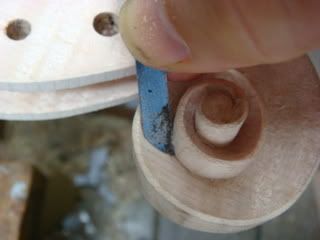
Here I'm using a thick needle to clean this area:
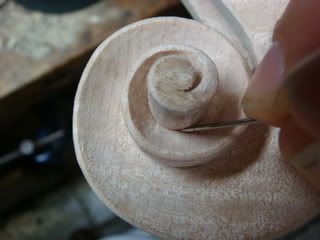

More entries: June 2009









